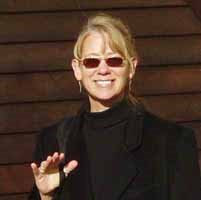It only makes sense that a company in the business of book publishing would want to use its website to make sales. The site is there for consumers to find and explore, and I can't think of a single reason not to include a shopping cart for purchasing.
A publisher's website is also a great place to highlight and push certain titles. Most of the sites I explored had added content about the authors—video interviews, tour dates. Why rely solely on bookstores and Amazon to present your product?
This said, I think a targeted approach is wise. Why try to reach every potential customer with a single, watered down, chaotic website when all large publishers use their imprints to target a smaller subset of their audience?
I think the best approach is for huge publishers to keep the corporate identity low-key and try to steer customers to the right imprint where they are more likely to find the books they'll want to read.
Imprints should reflect a united and cohesive collection. It is a basic tenet of marketing to know your customer and give them what they want. So why not create an online presence to reflect the target of your imprint? Make a club. Let your readers feel part of something—no different than being part of an online social network.
McSweeney's and Tin House both do a great job of this. They embrace their brand. Larger publishers should do the same and put more effort into branding their imprints and creating networks around them.
I have no idea if consumers will seek out publisher's websites to purchase books. If given the incentive—lower pricing, peer reviews and recommendations, convenience, and availability—they should. Publishers make a product and should be able to control the avenues of sales to some extent. But at the moment, it looks like Amazon will continue to keep a tight grip on the business of selling books.

Creating a niche market online means creating it in the acquisitions process, which may be even more difficult. McSweeney's and Tin House limit their appeal to some extent by doing this. The fact is, most consumers just aren't as hip as you and I. Okay, they just aren't as hip as you.
ReplyDelete